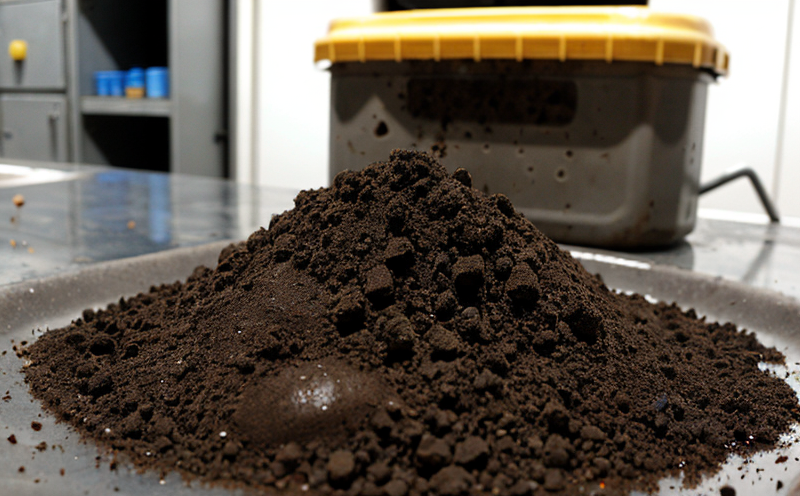JIS K0114 Determination of Residual Solvents in Polymers
The JIS K0114 standard is a critical method used to determine residual solvents present in polymers. This is particularly important for quality managers, compliance officers, R&D engineers, and procurement professionals who need assurance that the materials they use meet stringent safety standards.
Residual solvents can pose significant risks if not controlled properly during manufacturing processes. They may include volatile organic compounds (VOCs) which have been linked to various health issues when present in high concentrations. The JIS K0114 method ensures that manufacturers are aware of any potential contaminants and allows them to take corrective action before the product reaches consumers.
This standard specifies a gas chromatographic procedure for determining residual solvents in polymers, including polyvinyl chloride (PVC), polystyrene (PS), and others. It covers the determination of solvent residues such as acetone, methanol, ethanol, acetonitrile, and other common industrial solvents used during production.
The procedure involves several steps: sample preparation, which includes drying the polymer to remove moisture; extraction using an appropriate solvent; purification if necessary; and finally analysis via gas chromatography. The method is designed to ensure accurate quantification of residual solvents down to very low levels.
Accurate determination of these residuals is essential for ensuring product safety and compliance with regulatory requirements. By adhering strictly to the JIS K0114 guidelines, laboratories can provide reliable data that supports informed decision-making throughout the supply chain.
In addition to its role in quality control, this method plays a key part in research and development efforts aimed at improving polymer formulations by identifying optimal conditions for removing solvents without compromising product integrity. This knowledge helps streamline manufacturing processes while maintaining high standards of safety and efficacy.
Understanding the implications of residual solvents is crucial not only from a health perspective but also regarding environmental impact. Excessive amounts of certain solvents can contribute to pollution if they are released into the environment during disposal or accidental spills. Therefore, accurate measurement through methods like JIS K0114 supports both sustainable practices and regulatory compliance.
For those working within sectors such as pharmaceuticals, electronics manufacturing, automotive industry, construction materials, and packaging, ensuring that residual solvent levels meet specific limits is paramount. The JIS K0114 method provides a standardized approach to achieving this goal across different industries where polymers are used extensively.
The importance of accurate testing cannot be overstated when dealing with complex materials like polymers that contain numerous additives and processing aids during manufacturing. By using reliable techniques such as those outlined in JIS K0114, organizations can maintain confidence in their supply chains while contributing positively towards safer products and more sustainable practices.
Understanding the nuances of this standard will help your organization make better-informed decisions regarding polymer selection, production processes, and final product quality. Our team at Eurolab is well-versed in applying JIS K0114 across various applications, ensuring that you receive accurate results every time.
Frequently Asked Questions
Benefits
- Achieves accurate quantification of residual solvents down to very low levels.
- Ensures compliance with regulatory requirements.
- Sustains product quality and safety.
- Supports informed decision-making throughout the supply chain.
- Contributes positively towards safer products and more sustainable practices.
Eurolab Advantages
At Eurolab, we have extensive experience in applying JIS K0114 across various applications. Our team is well-versed in this method, ensuring that you receive accurate results every time. We pride ourselves on providing reliable data that supports informed decision-making and helps maintain high standards of safety and efficacy.
Our state-of-the-art facilities and highly trained professionals allow us to offer precise testing services tailored specifically for your needs. Whether it's routine quality checks or specialized research projects, we have the expertise required to meet all your requirements.
Environmental and Sustainability Contributions
The accurate determination of residual solvents through methods like JIS K0114 supports both sustainable practices and regulatory compliance. By ensuring that polymer formulations contain appropriate levels of residual solvents, we contribute positively towards safer products and more environmentally friendly manufacturing processes.
Our commitment to sustainability extends beyond our laboratory operations into the broader community as well. Through rigorous testing procedures such as those specified in JIS K0114, we help reduce waste generation by identifying unnecessary additives early on in production cycles. Additionally, our efforts promote circular economy principles by encouraging re-use and recycling of materials whenever possible.
At Eurolab, we believe that every test performed contributes not just to individual projects but also towards creating a better future for all. By adhering strictly to international standards like JIS K0114, we ensure that our work has wide-reaching positive impacts beyond just the immediate client.





